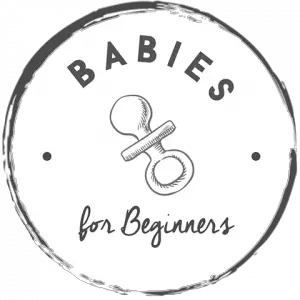Expectant couples have several options when it comes to quality obstetrical care. Think about which options in pregnancy and childbirth are important to you so that you can find a healthcare provider who shares your birth philosophy.
Here’s a good list of the types of caregivers available:
- Obstetrician (OB/GYN): An obstetrician is a physician who specializes in pregnancy and childbirth. OBs usually deliver in hospitals or birthing centers. If they have a FACOG credential, it means that they are a Fellow of the American College of Obstetrics and Gynecology.
- Family Physician: A family practitioner is trained in all aspects of family care including obstetrics, pediatrics, gynecology, and internal medicine.
- Nurse-Midwife: A certified nurse-midwife has a degree in nursing with specialty training in obstetrics. They can provide complete care for normal healthy pregnancies and must be associated with a backup OB in the event of complications. They can deliver in hospitals, birthing centers, and homes.
Midwives are an appealing option for expectant parents who want a more individual, less routine approach to the birth of their baby. This isn’t to say midwives are better or more qualified than doctors. They’re different professionals with different philosophies. - Traditional or Lay Midwife: This type of midwife has training in midwifery only and works with low-risk pregnancies. You need to check with your state to see what types of licensing/certification is required. They usually attend home births or births at birthing centers.
- Maternal-Fetal Medicine Specialist (Perinatologist): This type of physician is an obstetrician with special training in the care of high-risk pregnancies. Usually, a perinatologist will see patients referred by an obstetrician or family practitioner and will work with them in managing high-risk care.
Once you decide what type of caregiver you want, make a list of potential providers. After you’ve narrowed down the list, call to schedule interviews.
Be sure to tell the receptionist that this is an interview only and ask if there will be a fee. Before you go to the interviews, make a list of questions and take the list with you. If possible, both expectant parents should attend the interviews.
Use the questions below as a guide you during your interviews. Although the doctor or nurse-midwife may answer all the questions effectively, trust your instincts if the relationship doesn’t feel like a good fit, and ask yourself why.
Most doctors only have about 10-15 minutes to spare for your interview. Midwives may be able to give you a little more time. If the interview takes longer (up to 30 minutes) you may be charged a consultation fee.
Remember, when you choose a doctor or nurse-midwife, you’re also choosing the institution where you’ll deliver, which will have its own protocols and procedures. Make sure and check with support staff in the front office about where the doctor or nurse-midwife has hospital privileges.

Basic Questions for Doctor (OB/GYN or Family Practice) Interviews:
- How long have you been in practice?
- How available will you be to answer my questions?
- Are you a solo or group practice?
- If solo, who covers for you when you’re not available?
- If a group practice, how often will I see the other doctors or nurse-midwives?
- Prenatal Care: Do you perform VBACs (vaginal births after cesareans)?
- What tests do you routinely perform during pregnancy?
- Do you recommend any childbirth classes?
- If I become high-risk, what changes might I expect in my prenatal care?
Labor and Delivery:
- Do you, or one of your partners, meet me at the hospital when I’m in labor?
- At what point in my labor do you come to the hospital?
- What procedures do you routinely perform at the hospital(i.e. enemas, IV’s, continuous fetal monitoring, episiotomies, etc.)?
- What if I don’t want one of these procedures?
- Will you help me develop a birth plan?
Basic Questions for Midwife Interviews:
- How long have you been in practice?
- How many babies do you deliver a month?
- Are you licensed by the state?
- How do I reach you in an emergency?
- Who covers for you if you’re not available?
- Who is your backup obstetrician?
- Are you solo or with a group practice?
- If solo, who covers for you?
- If with a group, how often will I see others in the practice?
Prenatal Care:
- What tests do you routinely perform during pregnancy?
- Can you give me some examples of when you might manage my care jointly with the back-up OB or transfer me to an OB full-time?
- If I had to have a cesarean, would you stay with me during the procedure?
- Do you recommend any childbirth classes?
Labor and Delivery:
- What do you suggest to help me manage pain during labor?
- What procedures do you routinely perform at the hospital or birth center (i.e. enemas, IV’s, continuous fetal monitoring, episiotomies, etc.)?
- What if I don’t want one of these procedures?
- Will you help me develop a birth plan?

Questions to Ask Yourself after Interviewing a Doctor or Nurse-Midwife:
- Did you feel comfortable with the doctor or nurse-midwife?
- Is the office convenient?
- How long were you kept waiting?
- How helpful were the nurses and support staff?
What Type of Medical Practice Is Right for You and Your Pregnancy?
After you’ve decided on the type of caregiver you prefer, you’ll need to decide which kind of medical practice you’ll be most comfortable with. The solo medical practice is one where the doctor works for himself or herself using another doctor to cover when your doctor is away or otherwise unavailable.
An OB or a family practitioner may be in a solo practice but in almost all states a nurse-midwife must work in a practice with a physician. A major advantage to a solo practice is that you see your doctor at every checkup and you have the opportunity to really get to know them and feel comfortable. A major disadvantage is that if your doctor isn’t available at the time of delivery, your baby may possibly be delivered by a doctor that you’ve never had the chance to meet. Also, if you’re seeing a doctor who’s in a solo practice and you decide that things just aren’t “clicking” with the doctor halfway through your pregnancy, you may be stuck unless you can afford to pick up the bill and move to a different doctor.
The partnership or group medical practice is made up of two or more doctors in the same specialty. They care for patients jointly and see patients on a rotating basis. With this arrangement, the advantage is that by seeing a different doctor each time, you will get to know them all, and when labor is coming hard and fast there will be a familiar face in the delivery room. The disadvantage is that you may not like all the partners and you won’t have any control over who you will see at the delivery.
A combination practice is a group practice that includes one or more OBs and one or more nurse-midwives. The advantages and disadvantages are similar to those of a group practice. One advantage of having a nurse-midwife on staff is that they can usually spend extra time with you at your prenatal appointments.
A maternity or birth center-based practice is the type of practice where nurse-midwives provide the bulk of care to the patients and OBs are on call as needed. Birth centers provide care for low-risk pregnancies only. This is favorable to women who choose midwives as their primary practitioners. The main disadvantage of this type of practice is that if a pregnancy becomes a high-risk situation, you’ll have to switch to a physician in a more traditional setting and start new with them.
Conclusion: Explore Your Options and Come Prepared
Finding the perfect doctor or midwife can be quite a journey but once you have settled in with a caregiver and a practice that’s on the same “pregnancy wavelength” as you, you’ll be well on your way to delivery.
You can make the job of caring for you and your baby easier by being prepared for each visit by having a list of questions ready. Don’t withhold information. It’s crucial to tell your caregiver everything he or she needs to know.
Get the expectant father or partner involved; ideally, the father or your partner and caregiver should meet and be familiar with each other long before the first pang of labor hits. Finally, speak up and don’t hesitate to tell your caregiver if you’re dissatisfied and give him or her the opportunity to correct the problem.

